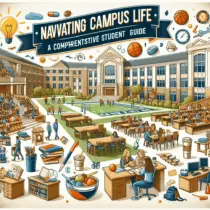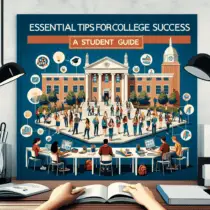First-generation students face unique challenges when it comes to pursuing higher education. Despite their academic potential, many first-generation students struggle to access the resources and support needed to succeed in college. However, scholarships specifically designed for first-generation students can be a game-changer, providing financial assistance and mentorship opportunities that pave the way for academic success. In this article, we will explore the importance of scholarships for first-generation students and highlight some of the opportunities available to help unlock their potential.
**The Impact of Scholarships for First-Generation Students**
Access to higher education is often limited for first-generation students due to financial constraints and lack of familial support. Scholarships play a crucial role in bridging this gap, making college more affordable and accessible for students who are the first in their families to pursue a degree. By providing financial assistance, scholarships alleviate the burden of tuition costs and allow students to focus on their studies without the added stress of accumulating debt.
In addition to financial support, scholarships for first-generation students often come with valuable mentorship opportunities that help guide them through the college experience. Many scholarship programs offer academic advising, career counseling, and networking opportunities that empower students to navigate the challenges of higher education successfully. This holistic support not only enhances academic performance but also fosters personal growth and professional development among first-generation students.
**Types of Scholarships for First-Generation Students**
There are various types of scholarships available specifically for first-generation students, each with its own eligibility criteria and benefits. Some scholarships are merit-based, requiring applicants to demonstrate academic excellence or leadership qualities. Others are need-based, taking into account financial need as a primary consideration.
One popular scholarship program for first-generation students is the Gates Millennium Scholars Program, which provides full tuition coverage for undergraduate and graduate degrees in any field of study. The program also offers mentorship opportunities and professional development support to help scholars succeed academically and professionally.
Another notable scholarship opportunity is the Coca-Cola First Generation Scholarship Program, which awards financial assistance to first-generation college students who demonstrate academic promise and financial need. Recipients of this scholarship receive funding towards tuition expenses as well as access to networking events and career workshops.
**How to Find Scholarships for First-Generation Students**
Finding scholarships tailored specifically for first-generation students can be daunting but with persistence and research, it is possible to uncover valuable opportunities. One approach is to search online databases such as Fastweb or Scholarships.com that allow users to filter scholarship options based on specific criteria such as ethnicity or background.
Additionally, reaching out to college financial aid offices or community organizations that specialize in supporting first-generation students can provide information on scholarship programs that may not be widely advertised. Building relationships with mentors or advisors who have experience working with first-generation students can also lead to valuable insights into scholarship opportunities that align with individual goals and aspirations.
**FAQs**
1. How do I prove that I am a first-generation student when applying for scholarships?
Most scholarship applications require applicants to provide information about their family background during the application process. This may include details such as parents’ educational attainment or whether they attended college.
2. Are there scholarships available specifically for minority first-generation students?
Yes, there are several scholarship programs designed specifically for minority first-generation students including those from underrepresented communities such as Hispanic or African American backgrounds.
3. Can I apply for multiple scholarships at once?
Yes, you can apply for multiple scholarships simultaneously as long as you meet the eligibility criteria specified by each program. It’s important to carefully review application requirements and deadlines before submitting your applications.
In conclusion, scholarships tailored for first-generation students open doors of opportunity by providing vital financial assistance and support throughout the college journey. By taking advantage of these resources and actively seeking out scholarship programs that align with their goals, first-generation students can overcome barriers to higher education accessibility and unlock their full potential in pursuit of academic excellence.






